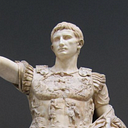Why Don’t Egyptians Speak Egyptian?
Three years ago, I published an article asking whether Arabic is truly one language, or a family of related dialects artificially joined for politics and convenience. It turned out to be one of my most controversial. I still receive regular messages, varying widely in politeness (and coherence), from people voicing opinions as diverse as the dialects I covered.
But a basic fact that no one questions is that people across the Arabic-speaking world live their daily lives in regional dialects, which can be as different from each other as French and Italian. The majority live in the Middle East, the ancestral homeland of the Arabs; or North Africa, where people adopted the language of Arab colonisers, but where native Berber identity is still deeply rooted.
However, by far the biggest Arabic dialect is that of a nation whose identity is more complex. As anyone on earth knows, Egypt has a long history. Its civilisation and literary tradition were millennia old before Arabs really existed. Other ancient civilisations have maintained their cultures — Persian people still speak Persian, and the Chinese are still Chinese. So, what happened to Egypt?
The Ancient Egyptian language belonged to the Afro-Asiatic language family, making it a cousin of Arabic. As the sun set on the age of the pharaohs, it was supplanted as Egypt’s official language by Greek. But the Ptolemies and the Romans were content to remain in Alexandria and other major cities, and the countryside remained as Egyptian as it had ever been. But what had been one of the world’s great languages was now thought of as rustic and backward; as Christianity spread, it acquired a more toxic association with the country’s heathen past.
The last hieroglyphs were etched on the wall of a remote island temple in A.D. 394. Egyptians’ link with their past was severed (until French archaeologists following Napoleon around accidentally discovered the Rosetta Stone in 1799). When Arab conquerors arrived two centuries later, bringing with them a new faith and a language not so dissimilar from the local one, many people jumped at the opportunity to be at the forefront of a new wave of history.
In the poor, chaotic world of the Middle Ages, any change took time. But within three centuries, Arabic had become the principal language of Lower Egypt (i.e., near the Nile Delta), and cities up and down the Nile. The old tongue held out longer in Upper Egypt — its last native speakers probably died around the time the Pilgrims sailed for America. But it was clear to everyone that a new day had dawned.
But, unlike the Arabised peoples of the Middle East, Egyptians retained a sense of separateness. A large share of the population (half in the Late Middle Ages, still 10% today) remained Christian, and use a latter-day version of Ancient Egyptian, called Coptic, as their liturgical language. They, along with many Muslims, reject the idea that Egyptians somehow turned into Arabs. Indeed, the national dialect is known to its speakers not as Egyptian Arabic, but simply as Masri, “Egyptian.”
Egyptian Arabic is, of course, a dialect of Arabic, but it carries a substantial legacy from the language it supplanted. Adjectives come after nouns, unlike other Arabic dialects but like Coptic. Many words, and even the general pronunciation of the language, are inherited from the ancient substrate. Less-populous Upper Egypt remains linguistically distinct, and its dialect is even more influenced by the old tongue.
By the 20th Century, Egypt’s national identity was extremely confused. It was an Arabic-speaking country with limited (<15%) Arab ancestry, ruled by an Albanian dynasty under Turkish suzerainty but de facto controlled by Great Britain. Against this bizarre backdrop, two principal groups sought to create a new, modern national self-image.
The debate featured Pan-Arabists on one side, against so-called Pharaonists, who stressed the country’s separate identity, on the other. The former, led by an ambitious army colonel named Gamal Abdel Nasser, ultimately won out politically. Modern Egypt’s official language is Modern Standard Arabic, the same as every other Arab country. But in everyday life, it has no more supplanted the local tongue than Greek did.
In major newspapers, 90% or more of headlines are in MSA. But any Egyptian can readily code-switch, sometimes even within the same sentence. Like Colonel Nasser, the country’s current leader, Abdel Fattah el-Sisi, generally prefers to address the nation in Masri. This phenomenon is known in linguistics as diglossia, and it has occurred in a broad range of societies, but the most prominent example in the modern world is in Arabic-speaking countries.
Today, Egypt’s identity is still less than perfectly straightforward. It is the largest and one of the most powerful Arab nations, whose people are not universally agreed as to whether it is truly an Arab nation. Of course, its language, religion, and past millennium and a half of history tie it closely to its neighbours. But it retains a unique national character that, to some extent, sets it apart.
Today, the pharaohs are long gone. The country they once ruled has transformed fundamentally. But their legacy lives on, not just in desiccated mausolea and buried treasure, but on the tongues of over a hundred million people. Egypt’s old national language may be no more, but, at least to them, Egyptians do still speak Egyptian.
